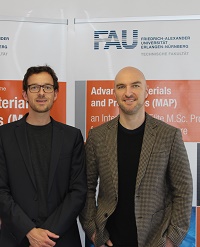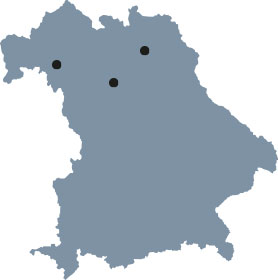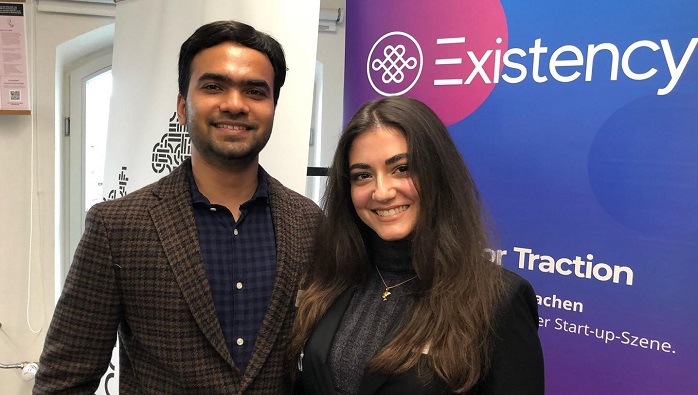Advanced Materials and Processes
Every modern technology, from implants to solar cells and computer chips, requires new functional materials and high-performance materials. These are increasingly produced using modern methods of nanotechnology, as well as biotechnology and chemical engineering. The interdisciplinary Elite Graduate Program “Advanced Materials and Processes” (MAP) therefore combines materials science with chemical and bioengineering in a unique curriculum to produce better materials more efficiently and sustainably.
| Degree | Master of Science |
| Duration of study | Four semesters |
| Place of study | Erlangen, Bayreuth, Würzburg |
| Admission requirements | Bachelor’s degree in chemical and biological engineering, materials science and engineering or related subjects. |
| Language of instruction | English |
| Head | Prof. Dr. rer. nat. Nicolas Vogel Prof. Dr. Peter Felfer |
| Coordinator | MAP Office Contact the coordinator |
| Further information | Website MAP |
New Materials and Processes
Advanced Materials and Processes (MAP) is a combination of materials science and engineering with chemical and biological Engineering. These disciplines play a key role in the development of novel technologies – without the development of new materials, a great range of key inventions from digital computers or jet engines to customized medical implants would not have been possible. Novel materials with new functionalities or improved properties, however, require specifically designed, economically and environmentally sustainable production processes – which might themselves depend on the development of new catalyst materials. This intimate connection between processes and materials is of key importance for advances and innovations in virtually any field of technology. Chemical and biological engineering and materials science and engineering are thus highly intertwined fields, which are, however, treated as separate subjects in traditional education.
The Elite Graduate Program offers highly gifted students with an interest in engineering an outstanding cross-curricular program in English language.
Besides its international orientation, a major asset of the program is its exceptionally strong relationship between lecturers and students. The Elite Graduate Program focuses on the implementation of engineering knowledge in material development and process engineering, in particular through the networking of the disciplines of materials science and engineering and chemical and bioengineering, which are strongly represented at FAU.


Functional high-performance materials have become indispensable in our everyday lives. In MAP, we train tomorrow's engineers to competently shape the development of such materials from the molecular structure to the sustainable manufacturing process.
Prof. Dr. rer. nat. Nicolas Vogel and Prof. Dr. Peter Felfer
Students can choose from four main areas of study: Biomaterials and Bioprocessing, Nanomaterials and Nanotechnology, Computational Materials Science and Process Simulation and Advanced Processes. The program includes lectures, tutorials and softskill seminars. It is a practical, research-intensive study program with practical work in the working groups of participating professors.
The combination of expertise in the field of materials and process technology ensures very good perspectives on the global job market. MAP graduates are sought-after specialists, especially in the modern professional environment of industrial research and development departments as well as in production and technical sales. They will find attractive career prospects in various industries, but also in companies that use corresponding products as semi-finished products or accessories. MAP graduates are also in demand for state research and project management as well as in independent consulting companies and in management.




